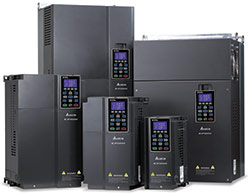How to Choose a Frequency Converter: Tips and Recommendations
Today, purchases of expensive goods happen very rarely. When you go to the store for a frequency converter, it is important to take this seriously. Many consumers have no idea about the criteria to consider when selecting a quality model of equipment.

Main Selection Criteria
When choosing a powerful frequency converter, it is not advisable to focus solely on the price or the appearance of the device. It is important to consider a number of other, more significant characteristics.
- Power Matching: The power of the converter must match the power of the motor. You can find a variety of units on the market with higher power than the standard ones offered by most manufacturers.
- Load Characteristics: Consider in what system the motor will be used — for example, in circulation pumps or ventilation systems, where the load is proportional to the square of the speed.
- Overload: During operation, motor overloads may occur, so it is important to know how different types of converters cope with this problem.
Speed Regulation and Braking
The next step in the selection process is to understand the range in which the motor speed will be regulated. It is also useful to purchase a resistor from the manufacturer that provides a long-term warranty — this indicates the durability of the electric motor's operation with the installed converter at low speed.
No less important is the issue of braking the mechanism. Converters that are capable of returning mechanical energy to the grid are better at handling this task.
Choosing a Quality Frequency Converter
Having familiarized yourself with these important aspects, you will be able to select a reliable frequency converter that meets your requirements and needs.